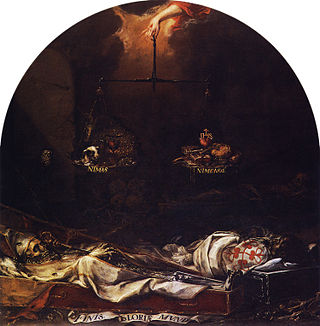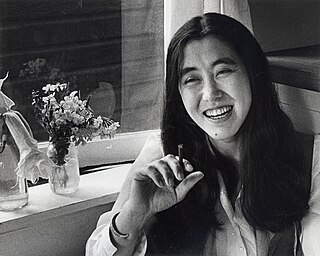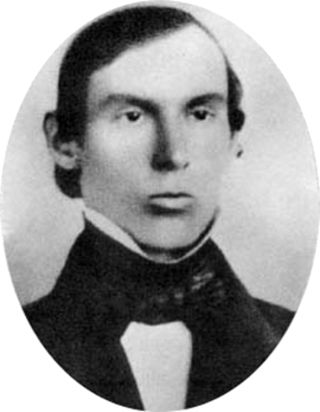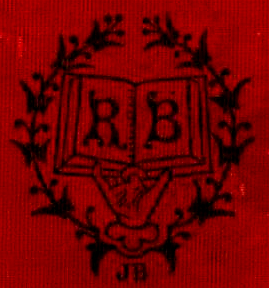
Emily Elizabeth Dickinson was an American poet. Little-known during her life, she has since been regarded as one of the most important figures in American poetry.
This article contains information about the literary events and publications of 1886.
This article contains information about the literary events and publications of 1830.

Sic transit gloria mundi is a Latin phrase that means "Thus passes the glory of the world."

Helen Hunt Jackson was an American poet and writer who became an activist on behalf of improved treatment of Native Americans by the United States government. She described the adverse effects of government actions in her history A Century of Dishonor (1881). Her novel Ramona (1884) dramatized the federal government's mistreatment of Native Americans in Southern California after the Mexican–American War and attracted considerable attention to her cause. Commercially popular, it was estimated to have been reprinted 300 times and most readers liked its romantic and picturesque qualities rather than its political content. The novel was so popular that it attracted many tourists to Southern California who wanted to see places from the book.

James Thomas Fields was an American publisher, editor, and poet. His business, Ticknor and Fields, was a notable publishing house in 19th century Boston.

Mei-mei Berssenbrugge is a contemporary poet. Winner of two American Book Awards, her work is often associated with the Language School, the poetry of the New York School, phenomenology, and visual art. She is married to the painter Richard Tuttle, with whom she has frequently collaborated.

Jones Very was an American poet, essayist, clergyman, and mystic associated with the American Transcendentalism movement. He was known as a scholar of William Shakespeare, and many of his poems were Shakespearean sonnets. He was well-known and respected among the Transcendentalists.
Nationality words link to articles with information on the nation's poetry or literature.
Nationality words link to articles with information on the nation's poetry or literature.
Nationality words link to articles with information on the nation's poetry or literature.
Nationality words link to articles with information on the nation's poetry or literature.

The Ralph Waldo Emerson House is a house museum located at 18 Cambridge Turnpike, Concord, Massachusetts, and a National Historic Landmark for its associations with American philosopher Ralph Waldo Emerson. He and his family named the home Bush. The museum is open mid-April to mid-October; an admission fee is charged.

Aileen Lucia Fisher was an American writer of more than a hundred children's books, including poetry, picture books in verse, prose about nature and America, biographies, Bible-themed books, plays, and articles for magazines and journals. Her poems have been anthologized many times and are frequently used in textbooks. In 1978 she was awarded the second National Council of Teachers of English Award for Excellence in Poetry for Children. Born in Michigan, Fisher moved to Colorado as an adult and lived there for the rest of her life.
David Gregory Miller is an American poet and academic. He has written four books of poetry. He is professor Emeritus of English at Millsaps College in Mississippi. Miller's poems have published in several literary magazines.

Edith Matilda Thomas was an American poet who "was one of the first poets to capture successfully the excitement of the modern city."

Messrs. Roberts Brothers (1857–1898) were bookbinders and publishers in 19th-century Boston, Massachusetts. Established in 1857 by Austin J. Roberts, John F. Roberts, and Lewis A. Roberts, the firm began publishing around the early 1860s. American authors included: Louisa May Alcott, Susan Coolidge, Emily Dickinson, Maud Howe Elliott, Louise Imogen Guiney, Julia Ward Howe, Helen Hunt Jackson, Abigail May Alcott Nieriker. British and European authors included: Berthold Auerbach, Caroline Bauer, Mathilde Blind, Juliana Horatia Ewing, Anne Gilchrist, David Gray, Philip Gilbert Hamerton, Jean Ingelow, Vernon Lee, William Morris, Silvio Pellico, Adelaide Ristori, A. Mary F. Robinson, George Sand, Charlotte Mary Yonge, Helen Zimmern.

"Success is counted sweetest" is a lyric poem by Emily Dickinson written in 1859 and published anonymously in 1864. The poem uses the images of a victorious army and one dying warrior to suggest that only one who has suffered defeat can understand success.
Nationality words link to articles with information on the nation's poetry or literature.











